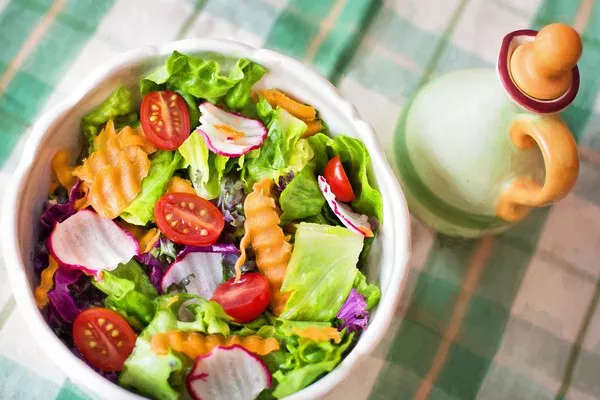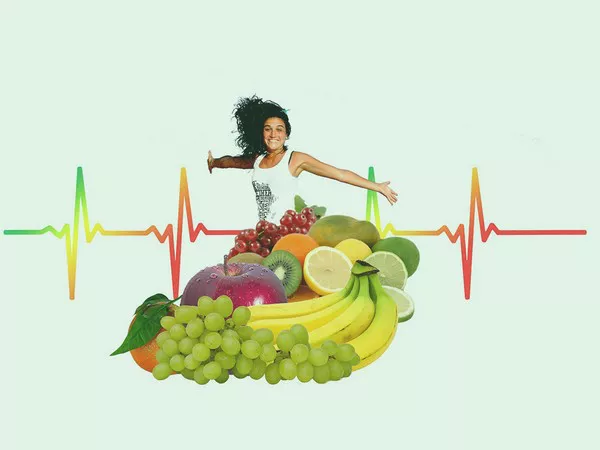Protein – the essential macronutrient that plays a pivotal role in our overall health and well-being. While commonly associated with meat and animal products, it’s important to realize that there are abundant sources of protein in the vegetarian world. In this article, we will embark on a journey to uncover the diverse array of high-protein vegetarian foods available to you. Whether you’re a long-time vegetarian or simply looking to incorporate more plant-based protein into your diet, we’ve got you covered.
Plant Proteins: Nature’s Nutritional Powerhouses
Protein – it’s not just about quantity; it’s about quality. Many plant-based foods not only pack a protein punch but also offer a multitude of other nutrients and health benefits. Let’s dive into the world of high-protein vegetarian foods and explore the versatile options that Mother Nature has provided.
1. Legumes: Protein-Rich Gems of the Plant Kingdom
When we think of protein-packed vegetarian foods, legumes are often the first to come to mind. These nutrient-dense wonders, including beans, lentils, and chickpeas, are not only affordable but also versatile. They can be incorporated into a wide range of dishes, from soups and stews to salads and spreads. Just one cup of cooked black beans, for instance, provides a whopping 15 grams of protein.
2. Nuts and Seeds: Tiny Powerhouses of Protein
Nuts and seeds are another group of high-protein vegetarian foods that deserve special mention. Almonds, peanuts, chia seeds, and flaxseeds are just a few examples of these tiny yet mighty protein-packed options. Not only do they add a satisfying crunch and flavor to your meals, but they are also loaded with healthy fats, fiber, and various vitamins and minerals. One ounce of almonds contains approximately 6 grams of protein.
3. Grains: Protein Beyond Bread
While grains like wheat, rice, and oats may not be the first thing that comes to mind when you think of protein, they still contribute to your daily protein intake. Whole grains, in particular, are a fantastic source of protein, fiber, and other essential nutrients. Quinoa, often referred to as the “mother of all grains,” boasts an impressive 8 grams of protein per cooked cup. Incorporating more whole grains into your diet is a delicious way to boost your protein intake.
4. Tofu and Tempeh: Soy-Based Protein Powerhouses
Protein, often associated with meat, takes on a new form in the world of vegetarian cuisine with tofu and tempeh. These soy-based products are renowned for their versatility in various culinary creations. Tofu, with its mild flavor, can be grilled, sautéed, blended, or used in desserts, while tempeh offers a nutty, earthy flavor that enhances savory dishes. Both are exceptional sources of plant-based protein, with tofu containing around 10 grams of protein per 3.5 ounces and tempeh providing roughly 19 grams per 3.5 ounces.
5. Dairy and Dairy Alternatives: Protein-Packed Choices
For vegetarians who include dairy in their diet, there are numerous high-protein options available. Greek yogurt, in particular, is a standout, providing approximately 10 grams of protein per 6-ounce serving. Cottage cheese, cheese, and milk are also protein-rich choices. If you’re following a vegan diet or lactose intolerant, fear not – there are plenty of dairy alternatives that offer protein too. Plant-based milk such as almond, soy, and pea milk often contain fortified protein content, with some varieties providing as much as 8 grams per cup.
6. Vegetables: Surprising Sources of Protein
Protein isn’t just confined to legumes, nuts, and seeds; even vegetables can be a surprising source of this essential nutrient. While vegetables generally contain less protein compared to other food groups, some are surprisingly protein-rich. Spinach, broccoli, and Brussels sprouts, for instance, contain respectable amounts of protein. Additionally, vegetables like peas, corn, and potatoes provide a moderate protein boost. Although you may not get all your protein from veggies alone, incorporating a variety of vegetables into your diet can contribute to your overall protein intake and provide essential vitamins and minerals.
7.Seitan: The Meat of the Plant World
Seitan, often called “wheat meat” or “vital wheat gluten,” is a lesser-known yet protein-packed option in the vegetarian world. Made from gluten, the protein component of wheat, seitan is exceptionally versatile and can be used in a variety of savory dishes. It boasts an impressive protein content, with roughly 25 grams of protein per 3.5 ounces. Due to its meaty texture and ability to absorb flavors, seitan is a favorite among vegetarians and vegans as a meat substitute in various dishes, from stir-fries to sandwiches.
Combining Proteins: The Power of Complementary Proteins
While individual vegetarian foods can be high in protein, it’s important to understand the concept of complementary proteins. Complementary proteins are two or more foods that, when combined, provide a complete set of essential amino acids, the building blocks of protein. Pairing foods like beans and rice, peanut butter on whole-grain bread, or hummus with whole wheat pita bread can help ensure that you get a well-rounded protein intake.
Protein Supplements: Meeting Your Dietary Needs
For those who struggle to meet their protein requirements through whole foods alone, protein supplements can be a convenient option. Protein powders, such as those made from pea, rice, hemp, or soy, offer a quick and efficient way to increase your protein intake. These supplements can be added to smoothies, oatmeal, or baked goods to boost protein content. However, it’s essential to use supplements as a complement to a balanced diet, rather than a primary source of protein.
Protein and Health: The Benefits of a High-Protein Vegetarian Diet
Protein is not just a dietary necessity; it also comes with a plethora of health benefits. A high-protein vegetarian diet can contribute to:
Muscle Maintenance and Growth: Protein is essential for building and repairing muscles, making it crucial for athletes and those looking to maintain or increase muscle mass.
Satiety: Protein-rich foods help you feel full and satisfied, reducing the likelihood of overeating and supporting weight management.
Metabolic Health: Protein can improve insulin sensitivity, regulate blood sugar levels, and lower the risk of type 2 diabetes.
Heart Health: Some high-protein vegetarian foods, like nuts, seeds, and legumes, are associated with reduced risk factors for heart disease, such as lower cholesterol levels.
Bone Health: Protein plays a role in bone health, along with other nutrients like calcium and vitamin D, helping to maintain strong and healthy bones.
Nutrient Density: Many protein-rich vegetarian foods are also rich in essential vitamins, minerals, and antioxidants, promoting overall well-being.
Balancing Your Protein Intake: Considerations for Vegetarians
While protein is essential, it’s essential for vegetarians to balance their diet to ensure they get a variety of nutrients. Here are some key considerations:
Amino Acid Profile: Pay attention to the amino acids in your diet, aiming to consume a variety of plant-based protein sources to ensure you get all essential amino acids.
Iron and Zinc: Vegetarians should monitor their intake of iron and zinc, as these minerals are less readily absorbed from plant-based sources. Incorporating foods like lentils, tofu, and fortified cereals can help meet your iron and zinc needs.
Vitamin B12: Vitamin B12 is primarily found in animal products, so consider fortified foods or supplements to ensure you meet your B12 requirements.
Calcium: While dairy products are a good source of calcium, vegetarians can turn to fortified plant-based milk, leafy greens, and almonds to meet their calcium needs.
Fiber: Vegetarian diets tend to be high in fiber, which is excellent for digestion, but be mindful of balancing fiber-rich foods with adequate protein sources.
Conclusion
Protein – it’s not just a buzzword; it’s the foundation of good nutrition. For vegetarians and those exploring plant-based options, there’s no shortage of high-protein foods available. From legumes and nuts to tofu and vegetables, the variety is both delicious and nutritious. By making informed choices and balancing your diet, you can harness the power of protein for better health, all while enjoying a diverse and satisfying range of vegetarian meals.
[inline_related_posts title=”You Might Be Interested In” title_align=”left” style=”list” number=”6″ align=”none” ids=”2753,2828,2741″ by=”categories” orderby=”rand” order=”DESC” hide_thumb=”no” thumb_right=”no” views=”no” date=”yes” grid_columns=”2″ post_type=”” tax=””]


































